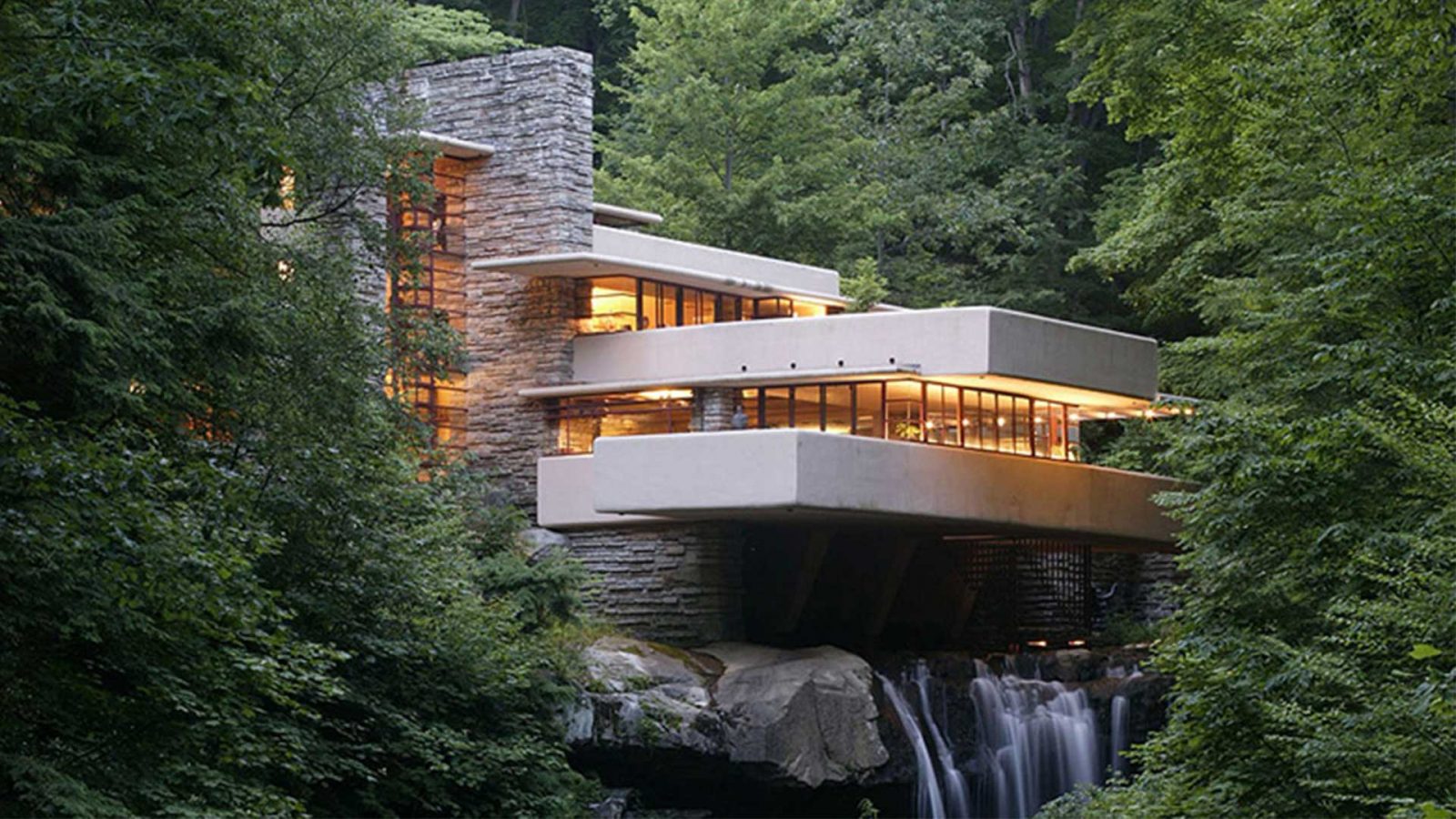PECO’s statewide solar credit procurement RFP process is supporting the adoption of clean, renewable solar energy, both in our service territory and throughout Pennsylvania. Frank Lloyd Wright’s architectural masterpiece, Fallingwater, is a prime example of how our efforts to support solar generation are helping Pennsylvanians embrace clean energy and reduce their environmental footprint.
In 1935, world-renowned architect Frank Lloyd Wright transformed a waterfall in rural Mill Run, Pennsylvania, into a tranquil but lavishly artistic home in the woods, now known as Fallingwater. Commissioned by Pittsburgh’s Kaufmann family, Fallingwater is one of the most unique estates in the world and is an embodiment of the union between art and nature. Fallingwater is one of Wright’s most crowned architectural achievements and has earned the title of “best all-time work of American architecture” by the American Institute of Architects. In 2019, Fallingwater was also designated as a UNESCO World Heritage site, along with seven other Frank Lloyd Wright buildings.
Fallingwater sits atop the Laurel Highlands in southwestern Pennsylvania, surrounded on all sides by 5,100 acres of natural land, streams, and trails known as the Bear Run Nature Reserve. Fallingwater was entrusted to the Western Pennsylvania Conservancy in 1963, which has have worked tirelessly to share the beauty of the home to the world through guided tours.
In an effort to offset the property’s energy use with clean, renewable electricity while preserving Frank Lloyd Wright’s legacy of sustainable architecture, the Conservancy partnered with Ecogy Energy and Pennsylvania-based solar installer Groundhog Solar to construct a 540-panel ground mounted solar installation on a meadow adjacent to the Fallingwater home. By building atop an already existing meadow, no trees were removed from the site. Ecogy planted pollinator friendly seed mixes for the ground mounted array to attract pollinators and other beneficial insects.
The electricity produced by this installation will generate Solar Renewable Energy Credits (SRECs), which are being acquired by PECO through our statewide solar RFP process. Acquiring these credits helps to support a stable market for SRECs and advances the growth of Pennsylvania-based solar generation.
Supporting solar is an important part of PECO’s Path to Clean initiative, which also includes goals to reduce emissions and invest in infrastructure to make clean energy solutions more accessible, affordable, and equitable for its customers. These SRECs will be counted toward the goals set forth under the Pennsylvania’s Alternative Energy Portfolio Standards.
